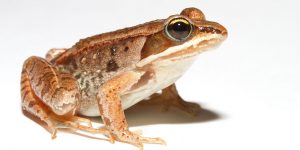Neonicotinoid Insecticide Exposure Harms Amphibians Across Multiple Life Stages
(Beyond Pesticides, September 27, 2022) Exposure to widely used neonicotinoid insecticides harms amphibians at multiple life stages, adversely affecting their ability to survive in the wild, according to research published in the Journal of Zoology. As long-lived, systemic insecticides, neonicotinoids are consistently found in U.S. waterways, often above federal safety limits, making these findings particularly dangerous for frogs and other amphibians throughout the country. As troubling data piles up on this class of dangerous insecticides, which are damaging pollinators, birds, deer, aquatic wildlife, and human health, it is left to the public to place pressure on federal regulators and members of Congress to act. To understand the impact of neonicotinoids on amphibian life stages, researchers conducted a range of experiments. These were designed to investigate how exposure to the neonicotinoid imidacloprid affected larval survival, sexual development, locomotor skills, and avoidance behavior of the wood frog (Rana sylvatica). Larval survival was examined by exposing tadpoles to 10 parts per billion (ppb) of imidacloprid, a rate lower than the lethal concentration expected to kill half of other frogs species in acute toxicity tests. Four treatment protocols were established, adding the variable of natural pond drying to half of the tested frogs to … Continue reading Neonicotinoid Insecticide Exposure Harms Amphibians Across Multiple Life Stages
